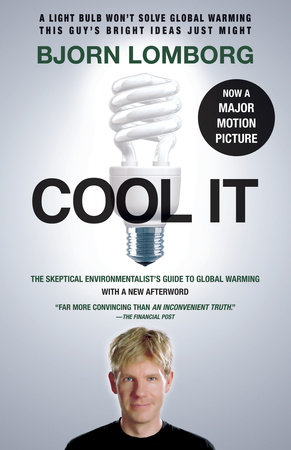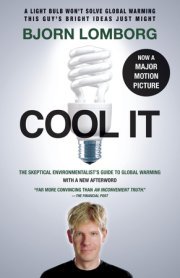Preface
Global warming has been portrayed recently as the greatest crisis in the history of civilization. As of this writing, stories on it occupy the front pages of Time and Newsweek and are featured prominently in countless media around the world. In the face of this level of unmitigated despair, it is perhaps surprising–and will by many be seen as inappropriate–to write a book that is basically optimistic about humanity’s prospects.
That humanity has caused a substantial rise in atmospheric carbon-dioxide levels over the past centuries, thereby contributing to global warming, is beyond debate. What is debatable, however, is whether hysteria and headlong spending on extravagant CO2-cutting programs at an unprecedented price is the only possible response. Such a course is especially debatable in a world where billions of people live in poverty, where millions die of curable diseases, and where these lives could be saved, societies strengthened, and environments improved at a fraction of the cost.
Global warming is a complex subject. No one–not Al Gore, not the world’s leading scientists, and most of all not myself–claims to have all the knowledge and all the solutions. But we have to act on the best available data from both the natural and the social sciences. The title of this book has two meanings: the first and obvious one is that we have to set our minds and resources toward the most effective way to tackle long-term global warming. But the second refers to the current nature of the debate. At present, anyone who does not support the most radical solutions to global warming is deemed an outcast and is called irresponsible and is seen as possibly an evil puppet of the oil lobby. It is my contention that this is not the best way to frame a debate on so crucial an issue. I believe most participants in the debate have good and honorable intentions–we all want to work toward a better world. But to do so, we need to cool the rhetoric, allowing us to have a measured discussion about the best ways forward. Being smart about our future is the reason we have done so well in the past. We should not abandon our smarts now.
If we manage to stay cool, we will likely leave the twenty-first century with societies much stronger, without rampant death, suffering, and loss, and with nations much richer, with unimaginable opportunity in a cleaner, healthy environment.
Copyright © 2007 by Bjorn Lomborg. All rights reserved. No part of this excerpt may be reproduced or reprinted without permission in writing from the publisher.








